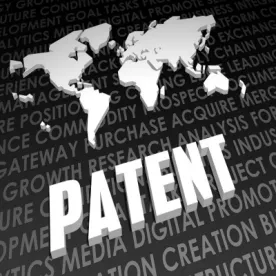On 18th December 2020, the German Federal Assembly (Bundesrat) approved the law on the Agreement on a Unified Patent Court of 20th June 2013 (UPC-Agreement) with the required two-thirds majority. It was the last puzzle piece for paving the way for a Unitary Patent System in Europe, which is now expected to be operational from 2022.
The entry into force of the UPC-Agreement was dependent on the ratification by the three Member States with the highest number of European patents, at that time Germany, France and the United Kingdom. France had already deposited its ratification in 2014 and the United Kingdom in 2018, but withdrew it in July 2020 due to Brexit. With its withdrawal from the European Union, the United Kingdom has refrained from participating in the establishment of a Unified Patent System.
In Germany, the ratification process was challenging after the German Federal Constitutional Court had annulled the first German Consent Act to the Agreement on a Unified Patent Court in 2017.
The new Unitary Patent System in Europe consists of the establishment of a European Unitary Patent and a European Unified Patent Court. The basic legal framework is provided among others by EU regulation no. EU-1257/2012 and the UPC-Agreement, which will only enter into force on the first day of the fourth month after the deposit of the necessary sixteen instruments of ratification. These have now all been completed.
A unified European patent protection has been in planning since the mid-1970s. For the European Union, the Unitary Patent, which necessarily includes the establishment of a Unified European Patent Court, is the central point of a new strategy for the protection of intellectual property.
The UPC-Agreement provides for the establishment of a Unified Patent Court as a common court of the participating member states for disputes concerning European Patents with unitary effect. It is to contain exclusive jurisdiction over an extensive catalogue of disputes, including inter alia, actions for patent infringements, disputes concerning the validity of patents and certain actions against decisions of the European Patent Office.
The Unified European Patent Court will consist of a court of first instance (with several local and regional chambers) located primarily in Paris and a court of appeal located in Luxemburg.
Currently, national courts and authorities rule on questions of infringement and validity of European Patents. Their decisions are only effective on the respective national territory. This has the potential to cause problems, for example, when a patent holder wants to enforce a European Patent in several countries or when a third party wants to obtain revocation of a European Patent. Parallel litigation in several countries is expensive and carries the risk of divergent decisions and a lack of legal certainty. Therefore, it has become common for parties to try to exploit the differences between national courts and their procedures in their favor.
The UPC-Agreement addresses these problems by establishing a specialized Unified Patent Court with exclusive jurisdiction and harmonizing the scope and limitations of the rights conferred by the patent and the remedies available beyond the EU Enforcement Directive 2004/48/EC.
The Unified European Patent Court will thus provide an effective forum to enforce patents in Europe and ends the need for parallel litigation in different member states of the EU. It will also harmonize substantive patent law with regard to the scope and limitations of the rights conferred by the patent and the remedies for infringement.
In practice, this will allow for simpler, faster and more efficient court proceedings.
This post was also written by Anna Rogler.




 />i
/>i

